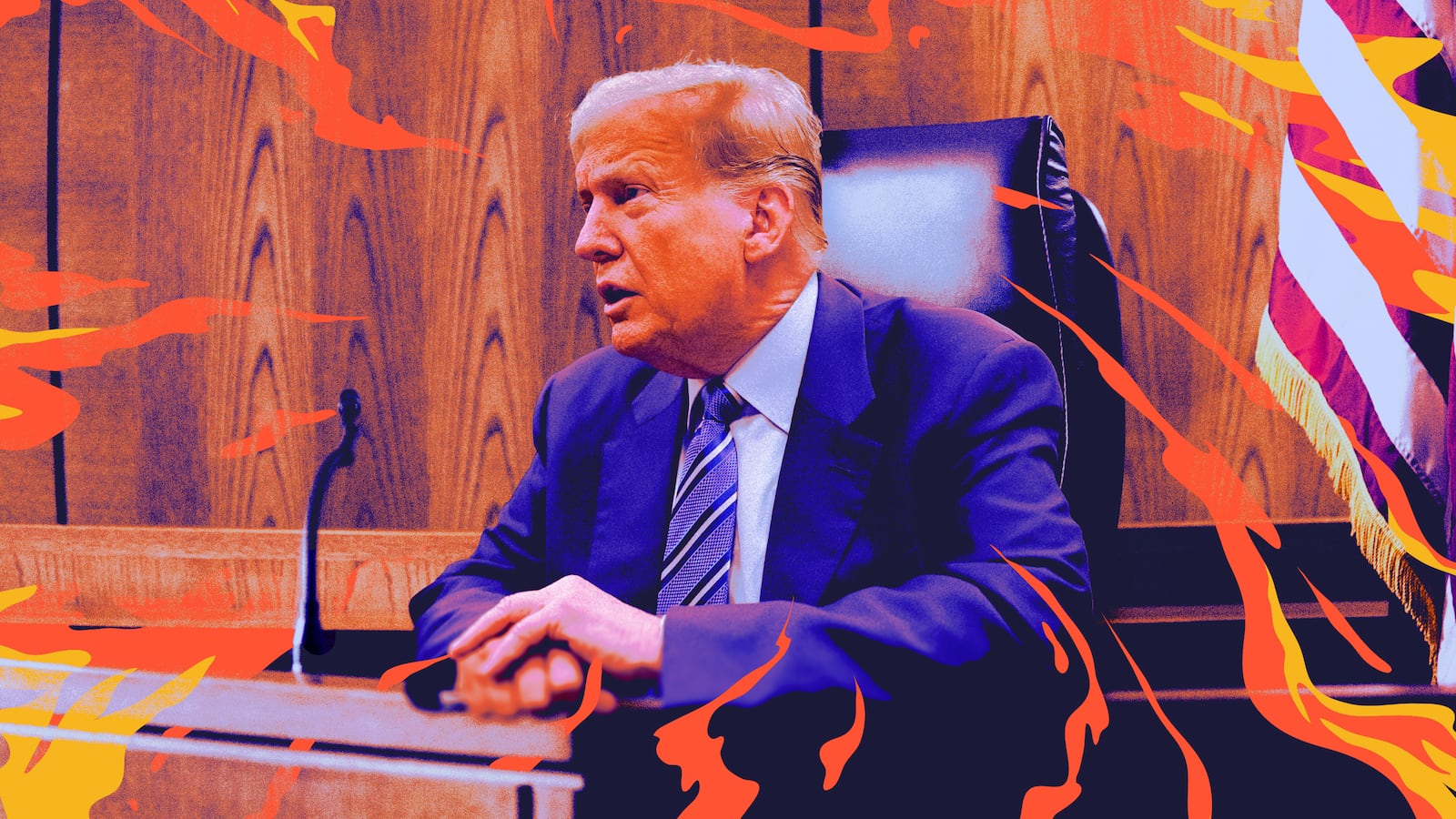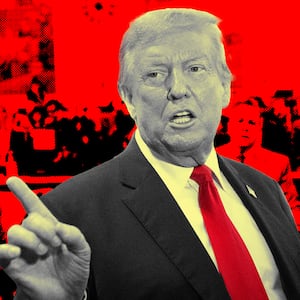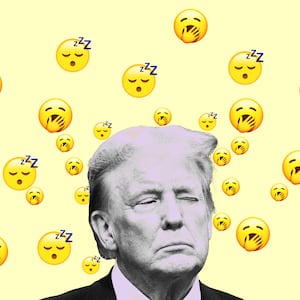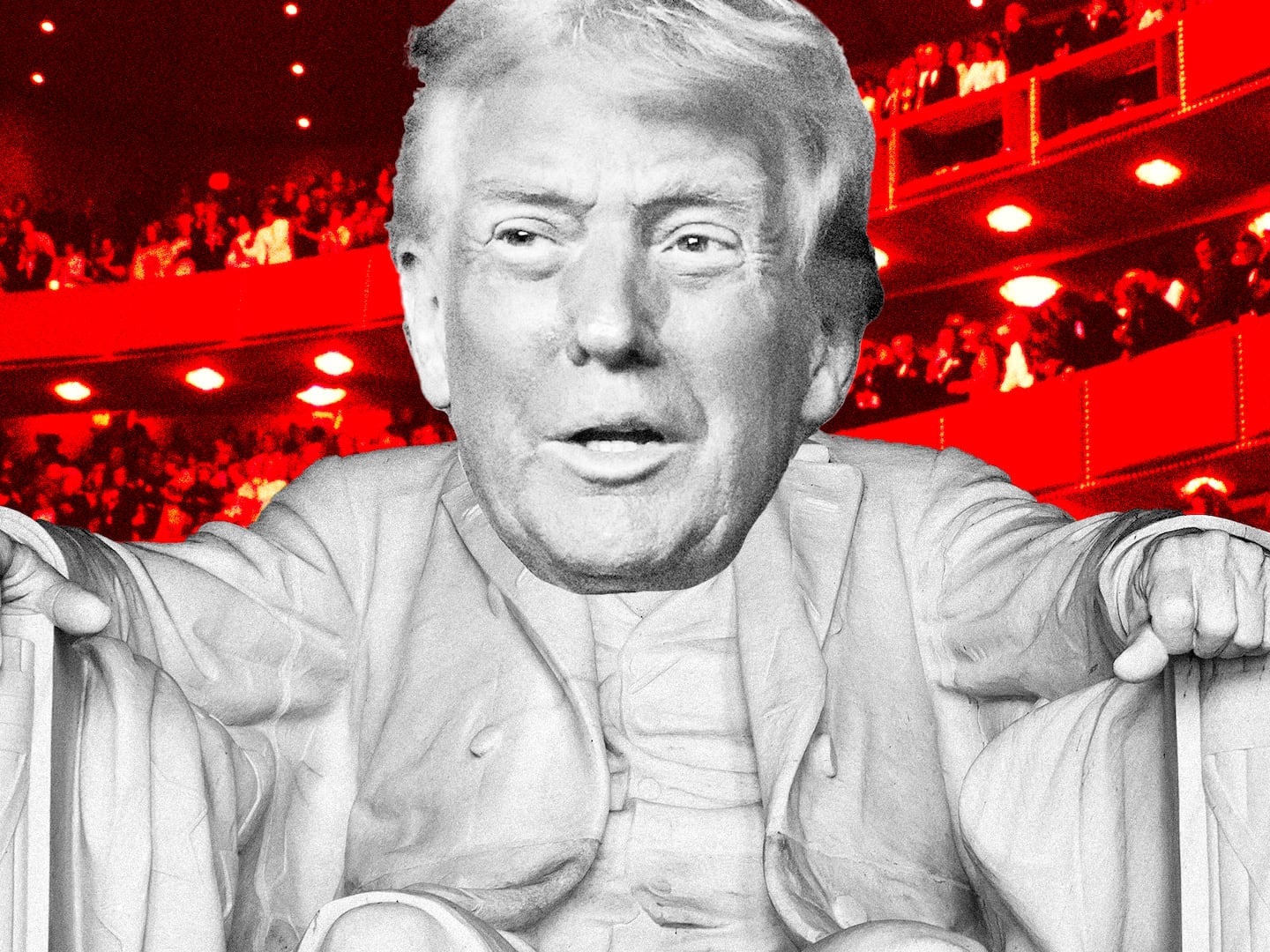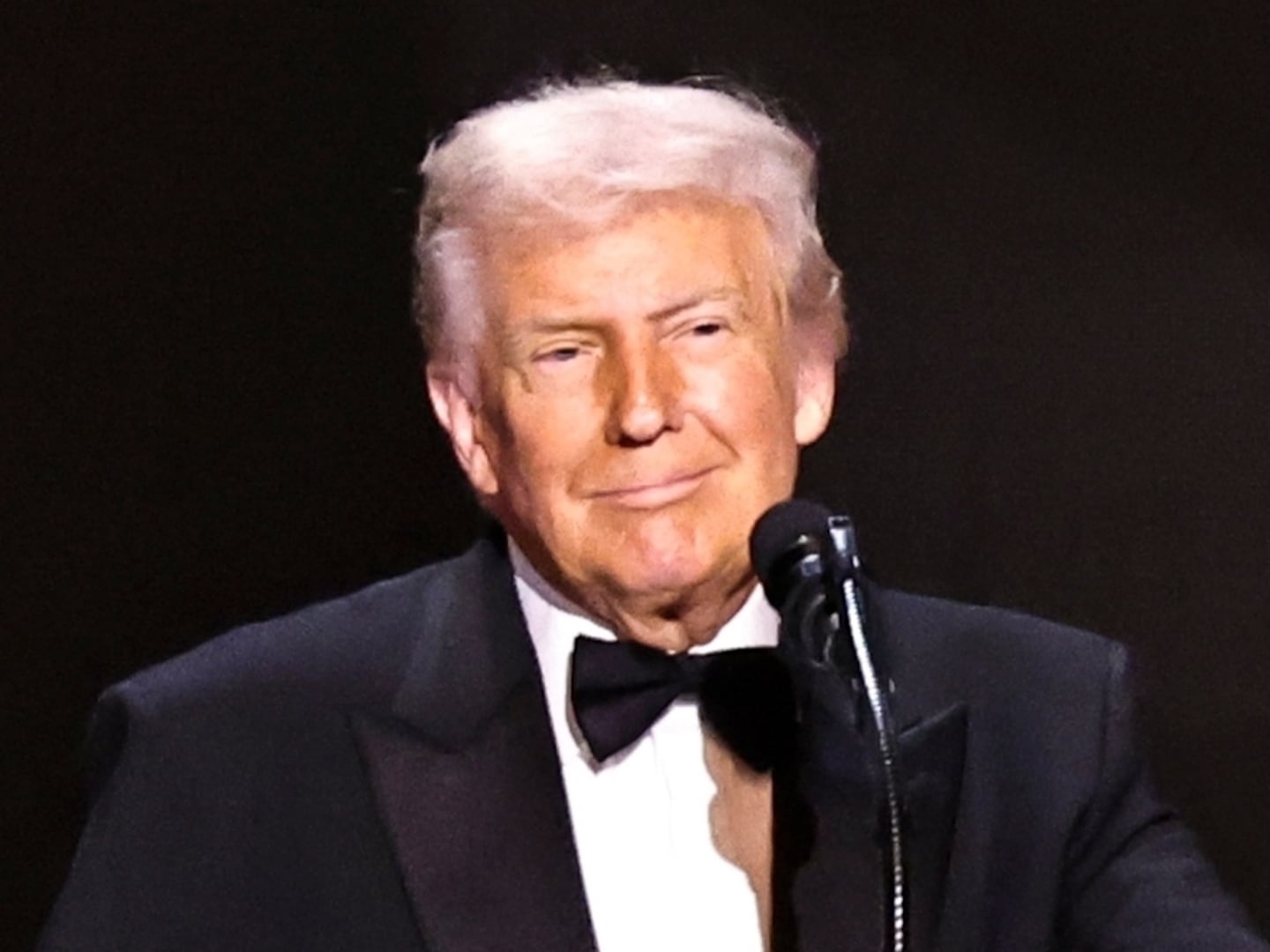As the first-ever criminal prosecution of a former president has finally gotten underway, the big question remains: “Will he or won’t he?” Will Donald Trump testify, that is.
His legal defense team may have little choice but to let its client put his right hand on the Bible and swear to tell the truth, the whole truth, and nothing but the truth. But his truth might not exactly set him free.
Trump’s serial incorrigibility, hair-trigger temper, and penchant for—shall we say—stretching the truth all make him any defense attorney’s nightmare as a witness. We’ve already seen it in other cases. This is the first one where the stakes are criminal.
Trump’s defense team failed in almost all of their pre-trial maneuvers: to delay the case, to move the case to another jurisdiction, and to get the judge presiding over the case to recuse himself. And despite an order restricting his efforts to try his case in the court of public opinion, he then attacked witnesses, the prosecution, the judge, and even the judge’s family. He now faces the possibility that he will be held in contempt of court for such statements.
After all of this, Trump and his legal team, and the prosecutors aligned against them, are finally selecting a jury. And opening statements and the first witnesses will follow soon thereafter.
Given the fact that Justice Merchan has already ruled that the prosecutors can introduce a wide range of evidence, it’s likely the defense team will have to make the decision that could mean victory or defeat in this case: should the former president testify?
What we know from Trump’s recent track record of providing testimony under oath, it hasn’t worked out great for him. As a result, the Trump legal team finds itself in a place no lawyer wants to be in during the course of representing a client: a distinct damned-if-you-do, damned-if-you-don’t situation.
Once the jury is sworn in, the evidence it will hear sounds like it could be quite bad for Mr. Trump.
Jury members will hear allegations of a coordinated effort with representatives of the National Enquirer to kill unfavorable stories by paying off those who had potentially damaging information about the former president—information, it is also alleged, he feared might sway the 2016 election against him.
They are also going to learn the contents of the Access Hollywood tape, where Trump infamously claimed he could grab women by their genitalia. Yes, the defense team was able to prevent the tape itself from being played in court, but the statements made on that tape are coming in as evidence, and they’re awful.
The defense team probably thought the heart of the prosecution’s case would be testimony offered by Michael Cohen, the former president’s former “fixer.” There are certainly questions that any defense counsel could raise about Cohen’s credibility, but there does seem to be quite a bit of evidence that will corroborate Cohen’s testimony. As a result, the core strategy—undermine Cohen—does not seem like it will be enough, on its own, to significantly weaken the prosecution’s case.
As a result, the former president and his legal team are likely to face a series of questions, ones that every defense team and its client must answer at the close of the prosecution’s case.
What sort of case do they put on themselves, if any? Will they rely on a belief that the prosecution’s case was so weak that no jury will convict the defendant and present no evidence of their own? If the attorneys do think they have to put on a case, that will then pose the most fundamental question any criminal defense team has to answer: “Will the defendant testify?”
What we know of the former president’s sworn testimony in prior cases, he does not seem to make the best witness.
He famously claimed that E. Jean Carroll wasn’t his “type.” When asked to identify a woman in a picture, he said he believed it was his second wife, Marla Maples (presumably his type). It was actually Carroll herself. In his trial before Justice Engoron, he gave long and rambling speeches that were off-topic and unpersuasive. Indeed, the court found that Trump’s testimony actually undermined his credibility.
If the evidence presented by the prosecution is as significant as it seems it will be, what choice will the defense team, and Trump, have?
It’s a classic lose-lose situation.
How the issue is navigated could very well mean the difference between a guilty verdict, or winning over the jury. Trump probably believes in his own ability to sway the jury (or at least one juror to try to secure a “hung jury” and a mistrial). An objective view of his recent efforts to defend himself is that they have not gone well.
Still, if the evidence is so damaging, Trump may have no choice but to testify. Failing to testify could leave the evidence unanswered. If he does take the stand, a cornered Trump—fighting for his freedom—will face devastating evidence and withering cross-examination, with the stakes as high as they can be. To put it lightly, it would be quite ugly. And the result of the trial could be equally so, for him.

